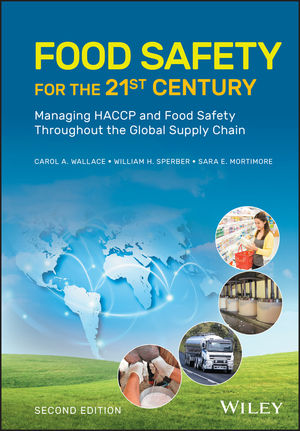AFFI’s strategic plan to produce safe food
AFFI members have embraced the idea that food safety is a pre-competitive area, and that member companies should share food safety best practices, knowledge and experience on a common platform.

In recent years, awareness and concerns about foodborne Listeriosis have expanded beyond generally agreed upon high-risk foods to include a heightened interest around frozen foods, resulting in several regulatory actions and frozen product recalls. In response, in late 2015, the American Frozen Food Institute (AFFI), McLean, Va., and its members committed to a concerted strategic effort to confront the food safety risks posed by Lm and ensuing threats to the viability of the frozen food industry. The strategy focuses on science, policy, education and outreach.
In December 2016, AFFI’s board of directors reaffirmed the institute’s Lm strategy that safe frozen food involved industry as well as consumer and customer education. That’s why they developed a 3- to 5-year strategic plan to guide the future use of AFFI resources against food safety, advocacy and other initiatives. While the plan has four major goals, the most important is a doubling down on the Lm strategy, expanding its significance to encompass AFFI’s long-term commitment to food safety.
AFFI members have embraced the idea that food safety is a pre-competitive area, and that member companies should share food safety best practices, knowledge and experience on a common platform. Here are key components of AFFI’s Lm strategy:
Science
To better understand the prevalence and level of Lm in frozen foods and their manufacturing environments, AFFI is funding research at Cornell University, Ithaca, N.Y., and the University of Georgia, Athens, Ga. The results will assist in developing robust environmental monitoring and sampling strategies to more effectively identify Lm harborage sites. The results may complement existing Lm risk assessment data pertaining to other foods, and help in establishing the relative risks associated specifically with the frozen foods category.
Additionally, AFFI conducted a blanching validation study in a variety of frozen vegetables that can be used by frozen food manufacturers to demonstrate that the blanching process consistently destroys viable Lm cells.
Education
This year, AFFI will conduct industry specific open dialog workshops with a 30-member committee of industry experts, academia and consultants to develop best practices for sanitation. In addition, AFFI developed several Lm-specific educational resources to equip AFFI members with the tools and systems to both comply with regulatory policies and further reduce and limit the presence of Lm in frozen food facilities. AFFI also chairs the Alliance for Listeriosis Prevention, a group of food and beverage associations seeking to share knowledge across the broader industry and build consensus toward science-based policies.
Consumer and customer outreach
In 2016, AFFI, through the Frozen Food Foundation, supported the Partnership for Food Safety Education (PFSE) on a fall campaign entitled The Story of Your Dinner, designed to raise consumer awareness about simple actions to reduce the risk of foodborne illness, such as listeriosis. AFFI worked with PFSE to remind consumers to always read and follow package cooking instructions on frozen foods. Alternatively, consumers may use frozen vegetables in new applications such as smoothies, which preclude cooking steps. These changes intensify the challenges of ensuring the safe consumption of frozen foods. As part of the Lm strategy, AFFI will evaluate and conduct research to seek the best voluntary packaging instructions to increase consumer understanding of safe cooking instructions.
Policy
Listeria-related policies and consistency among regulatory agencies in their guidance and enforcement remains a major challenge. In early 2017, the U.S. Food and Drug Administration released a draft Listeria control guidance for ready-to-eat foods that encourages companies to employ food safety programs that seek and destroy pockets of Listeria. AFFI has long advocated this monitoring and testing approach, which helps advance food safety best practices, particularly as they relate to a ubiquitous environmental contaminant such as Lm. However, positive Listeria spp. findings in food facilities should be viewed as an expected outcome of robust testing programs.
While the frozen food industry faces ambiguous regulatory policy, varying consumer behaviors and limitations in operational capability, AFFI is committed to achieving higher levels of food safety, reducing Lm contamination in facilities and ensuring safe and wholesome frozen foods.
Looking for a reprint of this article?
From high-res PDFs to custom plaques, order your copy today!









